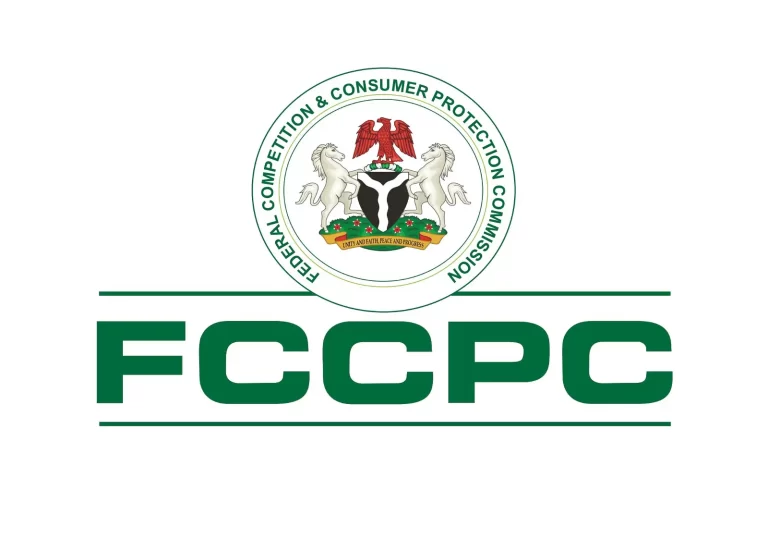From Fred Ezeh, Abuja
Federal Competition and Consumer Protection Commission (FCCPC) said it has discovered that some cartels and groups have hijacked some formal and informal markets with a view to determine, fix and control the prices of goods and services.
It said the cartels have also engaged in activities that encourage barriers to entry, exorbitant/excessive pricing, obnoxious business practices, abuse of dominant positions, unfair trade practices, restrictive agreements, market supply/allocations, among several others.
The Commission noted that the activities of the cartels and groups have heightened lately resulting in exploitative activities in the markets that have pushed the cost of basic goods and services higher than usual thereby inflicting hardship on the people.
To this end, the Commission announced a one month moratorium for the cartels and other groups operating in the markets to discontinue their activities or risk unfriendly actions from the Commission.
Executive Vice Chairman, FCCPC, Dr. Tunji Bello, announced the decision at a stakeholder’s engagement on exploitative pricing with businesses and traders in Abuja, on Thursday.
He explained that the objectives of the meeting was to provide a platform for open conversation and dialogue with the traders and other business operators to chart a path forward that balances the need for business profitability with the imperative of consumer protection.
He said: “We believe that through constructive engagements, we can establish a framework for reasonable pricing that benefits all stakeholders, particularly the consumers who are the backbone of our economy. This particular approach is neither punitive nor adversarial.
“But as a responsive organization, we have carried out discreet market surveys, extensively, across the country in the past few weeks, and our findings were quite disturbing. Therefore, our gathering is to underscore the gravity of the situation and urgency of the need that we both work together to check this unwholesome development.
“From our findings, the penchant to hike prices arbitrarily is common among sellers of food items and transport operators. When the foodstuff sellers were engaged, their common response was that the cost of transportation had increased. But how justifiable is it for the tomato seller to double the price of a basket of tomatoes simply because they paid higher transport fare? Whereas the price of the same basket of tomatoes was far cheaper at another market within the same jurisdiction surveyed by our field officers. Now, the question: did the seller who sold at a lower price not also pay transport fare?
“In a typical foodstuff market environment, this is how price fixing happens. A trailer-load of yam tubers arrives a market in Abuja from, say, Benue state. Rather than allow free trade, the market cartel then insert themselves between the produce farmers and the retailers. They buy in large quantities from the producer at cheap rate and, in turn, sell to market retailers at much higher price. And the retailers, in turn, sell to consumers at cut-throat rate. That’s exploitation that must stop.”
The FCCPC boss assured the traders that their complaints and challenges would be collated for further deliberations and actions. But until then, he discouraged the market traders from unwholesome market practices that could attract serious punitive measures.
He informed them that the law empowers the Commission to impose heavy fine for breaches and also prosecute offenders which could lead to jail terms. “For instance, Section 107 (4a.) of FCCPA clearly states that, ‘where the undertaking is a natural person, is liable on conviction to imprisonment for a term not exceeding three years or to payment of a fine not exceeding N10m or to both the fine and imprisonment.’
“Section 107 (4b.) also states that, ‘where the undertaking is a body corporate, is liable on conviction to a fine not exceeding 10 per cent of its turnover in the preceding business year.
But in the spirit of democracy, we are first exploring the option of dialogue.
“It is also in this spirit that we are giving the moratorium before we will start firm enforcement. Let us work together to create a marketplace that is not only competitive but also fair and just. The FCCPC is committed to continuing these dialogues, monitoring compliance, and taking decisive action where necessary.”
Meanwhile, the Executive Commissioner, Operations, Dr. Abdullahi Adamu, in his welcome remarks, explained that FCCPC is not a price regulatory agency neither is it involved in price fixing, but intervene whenever there’s a exploitative pricing.
“In this case, there’s serious exploitation of customers by some cartels running the markets. If the expected changes are not recorded within the shortest time, FCCPC, will not hesitate to apply the full wrath of the law where and when necessary,” he said.
Yahoo Mail: Search, Organize, Conquer
